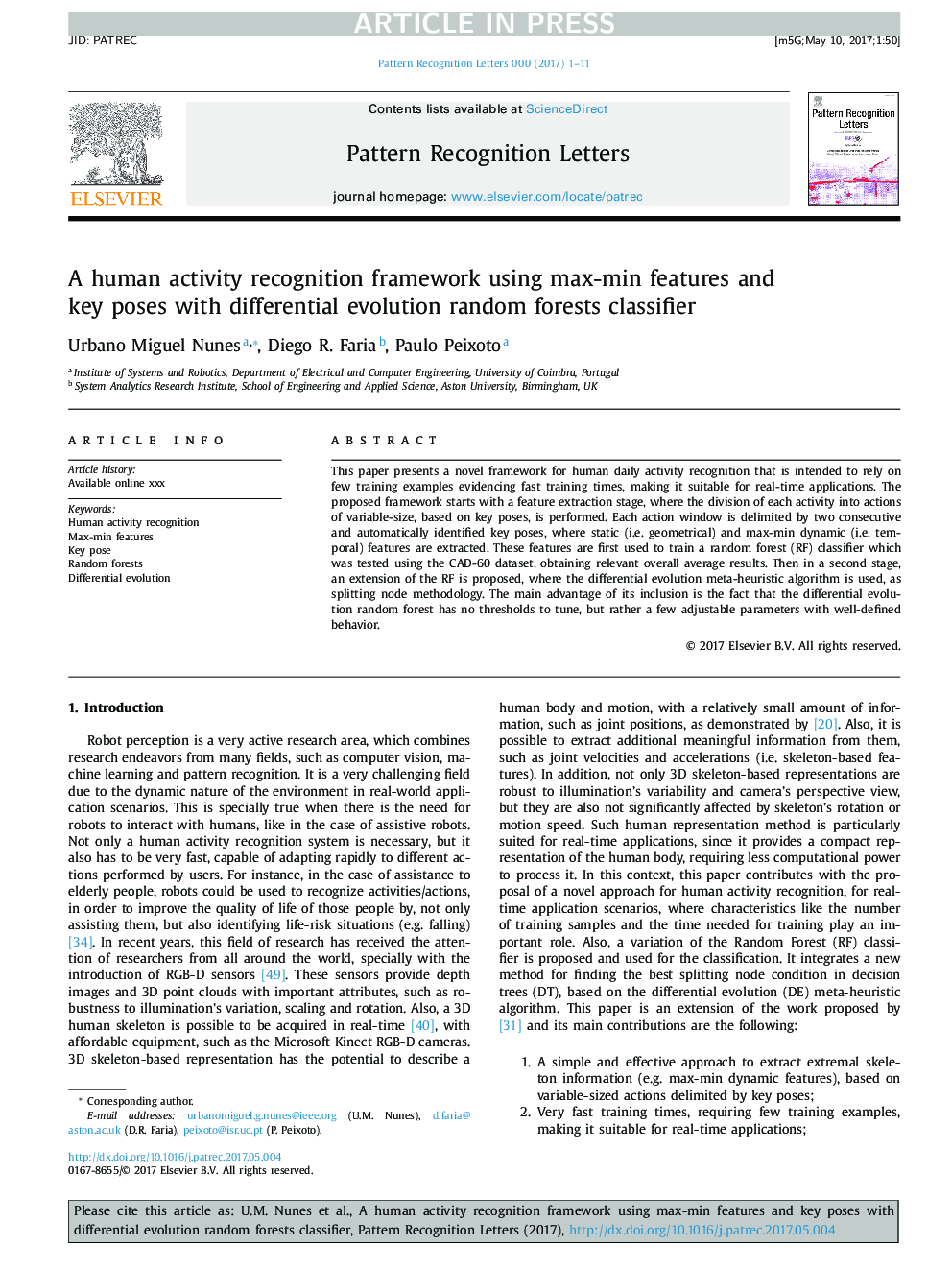| Article ID | Journal | Published Year | Pages | File Type |
|---|---|---|---|---|
| 6940833 | Pattern Recognition Letters | 2017 | 11 Pages |
Abstract
This paper presents a novel framework for human daily activity recognition that is intended to rely on few training examples evidencing fast training times, making it suitable for real-time applications. The proposed framework starts with a feature extraction stage, where the division of each activity into actions of variable-size, based on key poses, is performed. Each action window is delimited by two consecutive and automatically identified key poses, where static (i.e. geometrical) and max-min dynamic (i.e. temporal) features are extracted. These features are first used to train a random forest (RF) classifier which was tested using the CAD-60 dataset, obtaining relevant overall average results. Then in a second stage, an extension of the RF is proposed, where the differential evolution meta-heuristic algorithm is used, as splitting node methodology. The main advantage of its inclusion is the fact that the differential evolution random forest has no thresholds to tune, but rather a few adjustable parameters with well-defined behavior.
Related Topics
Physical Sciences and Engineering
Computer Science
Computer Vision and Pattern Recognition
Authors
Urbano Miguel Nunes, Diego R. Faria, Paulo Peixoto,
